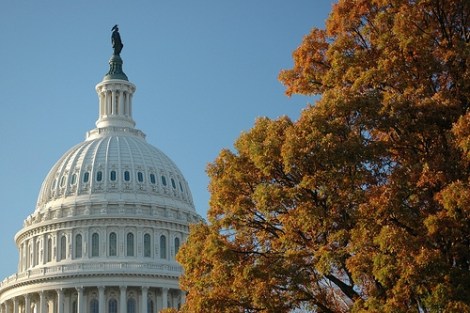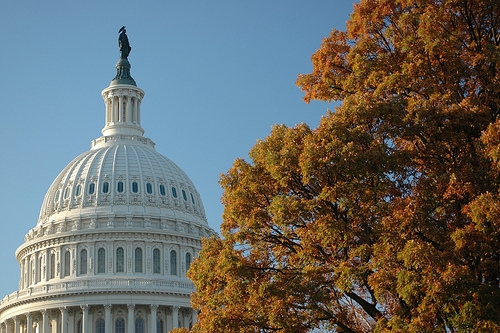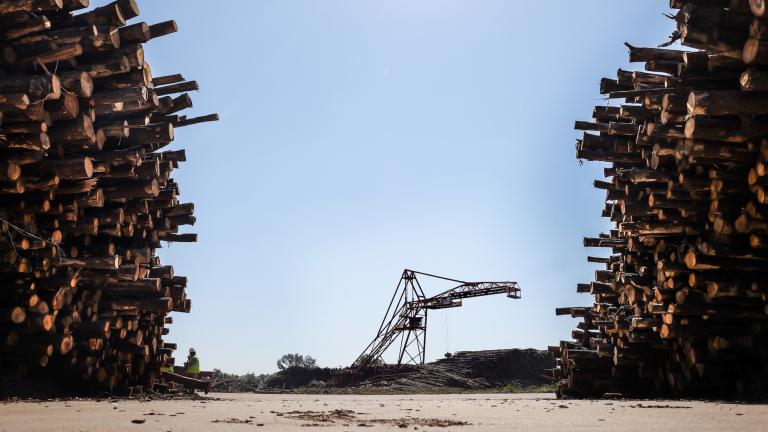People steeped in Washington, D.C., culture like to think that what happens in D.C. is as complex as it is important. That everyone on the Hill and the lobbyists on K Street and the various NGOs scattered around downtown are engaged in tremendously wily, hyper-intelligent combat. Gentlemanly combat, mind you — cocktail-sipping James-Bond-with-a-cocked-eyebrow scheming — but combat nonetheless. This is because people like to feel exceptional and smart and important, yourself and myself included.
Happily, D.C. also has a news outlet that is eager to play the game, to lift up the city’s generals and parse their feints and strikes. That news outlet is called “Politico,” and it is the city’s chronicler and enabler. Politico says D.C.’s obsessions are important and the city’s obsessives think Politico is the paper of record. It’s an elegant cycle.

Photo Phiend
This morning, Politico ran an article, written by Mike Allen and site co-founder Jim VandeHei, which offered us humble D.C. outsiders a look at what Savvy Washington Generals Say Will Get The Economy Going. “Most politicians in the most powerful positions in Washington agree in private that there are a half-dozen or so big things they could and should do that could put a rocket booster on the U.S. economy,” the article began, then warning, “but they are too timid to say it in public.”
I mean, that’s a scoop. There are six things that can create “not an economic recovery — but a boom,” and they’re a secret and you are going to tell us that secret? Grab your smartphone, check to make sure no one is watching, and then hide in a closet to read this story. It’s almost too dangerous for a mortal like yourself.
And here, according to Politico, is one component of that rocket fuel.
The international trinity of energy, trade deals and immigration is how policymakers could really get the economy cooking again.
The explosion of domestic natural gas and oil production is arguably the biggest overlooked story of the past year. The International Energy Agency now projects the United States could blow by the Saudis by 2020 to become the leading oil producer in the world. The freshest sign: Monthly oil production in September hit a 15-year high. The reason is simple: the explosion of “fracking” to extract energy from abundant shale rock foundations.
No doubt, there are environmental concerns, especially for drinking water. But this could no doubt transform big swaths of the economy. It’s already creating tons of jobs in Texas and North Dakota — and could be part of a much bigger and broader jobs boom, if managed correctly by business and Washington policymakers.
Pow! Now you know the “inside stuff,” the “down low” on how the economy can shoot off into space, richocheting off of lesser planets for all eternity. The secret, in short: an oil boom that’s already happening.
Um. What? That’s literally all that’s said on energy. “Oil is booming.” Not even an obvious pro-business “… so drill more.” Just “Hey, look at this.” It’s … weird.
Joe Weisenthal from Business Insider has a different word for it: “funny.”
Really, where on earth are the bold ideas here that can only be discussed in private? Tax reform, entitlement cuts, oil & gas spending, and more high-skilled immigration are the most publicly talked about ideas from CEOs, Squawk-Box guests, and Simpson & Bowles-types. They’re always presented as being “bi-partisan.”
There are actually some ideas that could help the economy that don’t get talked about. Bailing out underwater homeowners is an idea that a lot of economists favor, but which Obama won’t touch. Actually, pretty much all stimulus is considered “unserious” if proposed. But we don’t get any of that here. Just cliche ideas repackaged as a-political wisdom.
Matt Yglesias derides the article as “completely preposterous” in its entirety, suggesting that Allen and VandeHei were blinkered by some big names from Wall Street. “New York-based financial reporters seem to me to frequently misunderstand congressional proclamations,” he writes, “and by the same token DC-based political reporters are all-too-credulous when CEOs show up in person to do their own lobbying.”
Which is certainly part of it. If the connected, rich CEO of a company pulls you aside and gives you the skinny on getting business going, it’s understandable that you’d go along with that to some extent — particularly if you were pre-programmed to be credulous and deferential in such circumstances.
But the absolutely staggering aspect of this to me is that this article is presented by one of the most influential media outlets as a detailed, savvy assessment of arguably the biggest political issue in Washington today. And its overview of energy (as well as most other issues) is so non-comprehensive and incomprehensible as to be embarrassing. Literally embarrassing!
Politico’s interest is not now and never has been why the war is being fought or, really, the weapons used. Politico cares only about the high-ranking combatants and the scenes of battle. And so we get this top-secret outline of how the economy can grow: We extracted a lot of oil in September.
I’m afraid this may turn out to be another article that Politico will tell us doesn’t matter.




